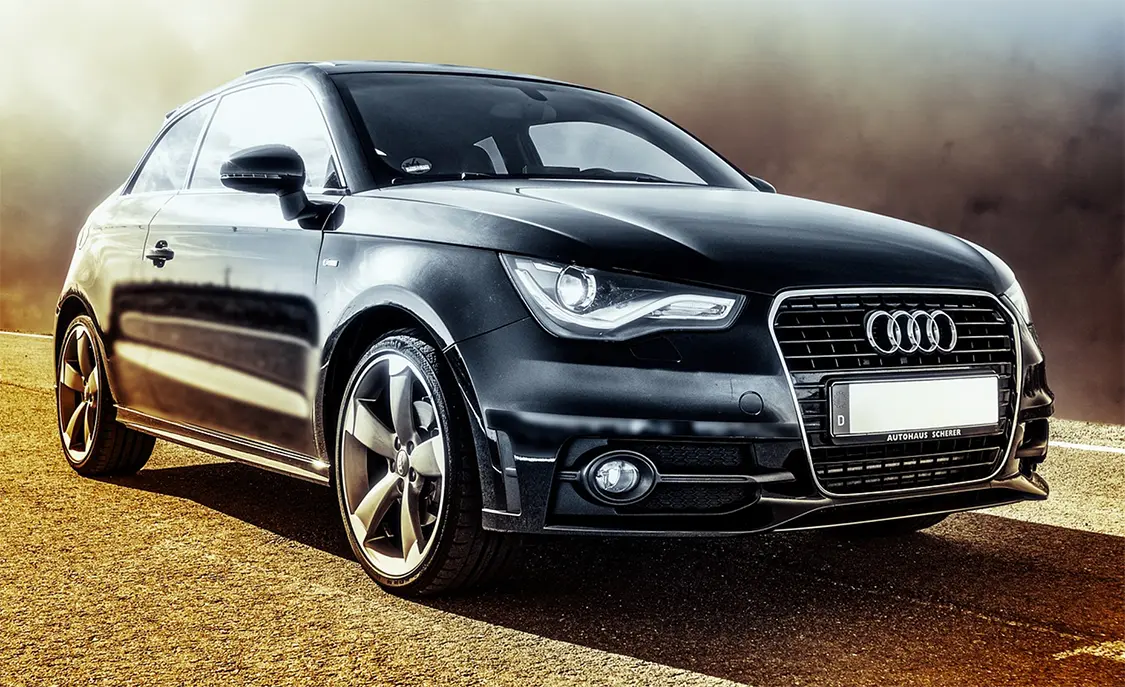 Motortopia Staff
.
February 01, 2025
.
Industry Updates
Motortopia Staff
.
February 01, 2025
.
Industry Updates

Purchasing a car ranks among the most substantial fiscal choices individuals make throughout their lives. It’s an act that entails harmonizing personal tastes, pragmatic necessities, and monetary truths. Cars are not merely vehicles for travel; they symbolize independence, ease of life, and for some, a mirroring of their lifestyle. Understanding the key factors involved, from sleek new models fresh off the assembly line to reliable used vehicles with years of proven performance, ensures that your choice aligns with your goals and circumstances, despite a plethora of options making the decision feel overwhelming.
Deciding to buy a new or used car is one of the most crucial aspects, impacting not just the upfront cost but also long-term expenses, reliability, and satisfaction. New cars allure buyers with cutting-edge technology, full warranties, and peace of mind from a clean history. Used cars typically prove more affordable; they offer slower depreciation rates and opportunities to find high-quality models within a tighter budget. Carefully weighing these options helps buyers choose an option tailored to their individual needs.
Determining your budget is the first and most critical step in purchasing a car. New cars carry a significantly higher initial price tag because of their pristine condition and incorporation of the latest features. Moreover, dealership fees, taxes, and registration costs increase this expense. Conversely, used cars often boast a lower purchase price, rendering them more attainable for budget-conscious buyers. Nevertheless, one must account for additional expenses—including inspections and repairs—to ensure the vehicle meets roadworthiness. A firm grasp of your financial constraints will streamline your search and forestall excessive spending.
While upfront costs demand attention, you must not ignore long-term expenses like fuel efficiency, maintenance, repairs, and depreciation. New cars typically offer improved fuel economy and reduced initial repair costs. However, they also depreciate quickly, impacting their resale value. Used vehicles, while affordable initially, often necessitate increased repairs and maintenance for older models—a detailed assessment of these costs aids in aligning with your financial objectives.
When purchasing a car, consider insurance costs—a critical factor affecting your monthly budget. New cars come with higher premiums due to their greater replacement value and advanced technology. Conversely, preowned vehicles tend toward lower premiums owing to reduced market value and an absence of costly features characteristic of newer models. Older cars lacking certain safety features often incur higher premiums; therefore, actively comparing insurance quotes for various models and incorporating these considerations into your total budget is crucial, preventing unexpected financial strain.
To further cut auto insurance costs, consider bundling multiple policies. For instance, you can check out getting some auto insurance bundled with home insurance policies to maximize your savings and simplify the management of your policies.
Deciding between a new or used car requires careful consideration of depreciation. New cars depreciate quickly, experiencing the most considerable decline in just the first year; therefore, selling a new car soon after purchase may result in recouping only an insignificant portion of your investment. Buyers valuing long-term value retention may find this rapid depreciation a significant drawback. Understanding the rate at which a specific make and model depreciates can inform your evaluation of a new car’s worth as an investment.
Conversely, used cars depreciated at a slower pace which renders them more cost-effective for those intent on reselling later. Despite lacking the allure of brand-new models, their sustained value over time offers budget-conscious buyers a wiser financial decision. Guide your decision and secure long-term financial alignment by researching different models’ resale values. This step ensures you select the most economically advantageous car.
Purchasing a new car offers one significant advantage: the inclusion of a manufacturer’s warranty, which typically protects against major repairs and replacements for several years. Furthermore, new cars are less prone to mechanical issues in their early years, minimizing the risk of unforeseen repair expenses. Buyers prioritizing reliability and seeking to minimize maintenance hassles find a new car with an extensive warranty highly appealing.
Conversely, buying a used car can entail greater maintenance expenses owing to prior use-related deterioration. Key parts like brakes, tires, and the transmission might need prompt servicing depending on age and mileage. Prospective owners must determine if an existing warranty covers their vehicle or consider acquiring additional coverage through an extended warranty for enhanced security. Ensure you engage a reliable mechanic to inspect the vehicle prior to purchase completion.
New cars, boasting the latest technology are equipped to enhance the driving experience. For tech-savvy buyers or those prioritizing cutting-edge features, a new car is indisputably superior. Moreover, new cars frequently meet the most current environmental standards; hence, they allure drivers concerned with ecological responsibility.
On the other hand, used cars often miss modern amenities present in new models. Despite this, reliability remains a strong suit for many though they may forego cutting-edge driver-assistance systems or the latest entertainment technology. Nevertheless, their worth is undisputed. Used cars often feature tried-and-true technology that has proven reliable over time, providing dependable functionality without the premium price tag. Buyers valuing practicality over cutting-edge gadgets will find that a used car effectively meets their needs.

Making the right choice between a new or used car demands that you carefully weigh your personal needs and priorities. first, evaluate your budget and align your purchase to suit your financial situation. Additionally, consider your long-term ownership intentions. Are you in pursuit of a vehicle to accompany you over numerous years, or is an upgrade anticipated within the next few? Grasping your long-term objectives is key; it steers you toward an aligned purchase with your specific necessities.
Upon clarifying your priorities, you should actively research and compare models. This entails not only browsing car listings but also delving into critical details like fuel efficiency, safety ratings, resale value, and customer reviews. By scrutinizing features and costs among various alternatives, you empower yourself to strike a prudent balance between quality and economy.
Deciding whether to buy a new or used car demands meticulous thought and research; this process, albeit daunting, is crucial for selecting a vehicle that fits your finances, lifestyle, and future aspirations. Evaluate the advantages and drawbacks of both choices—considering budget constraints, dependability issues, and individual preferences—to approach this significant investment confidently. Assess your needs thoroughly—whether you’re enticed by the innovative features of a new car or the cost savings from purchasing a used one—and choose an option that will meet your requirements for years ahead.
Share Link